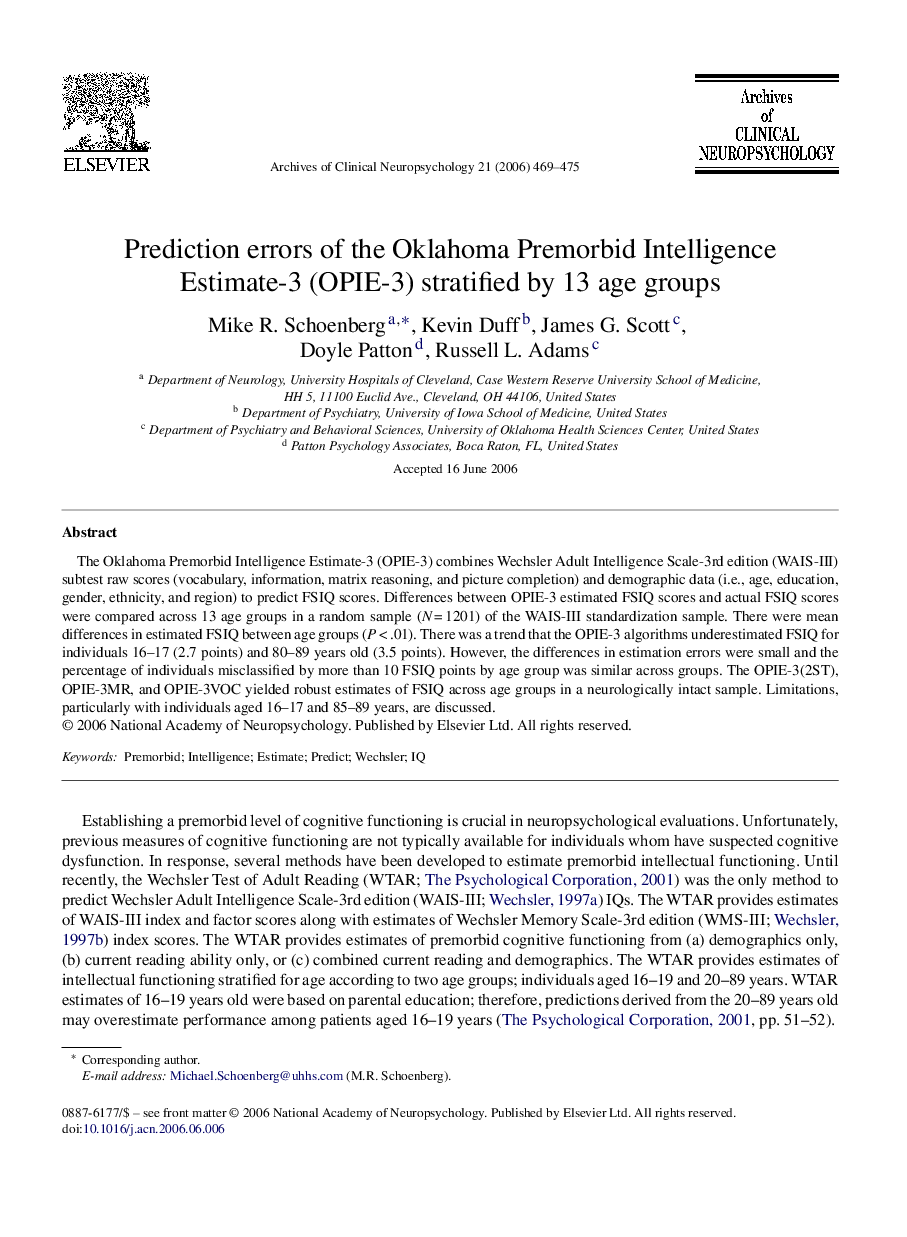| Article ID | Journal | Published Year | Pages | File Type |
|---|---|---|---|---|
| 901096 | Archives of Clinical Neuropsychology | 2006 | 7 Pages |
The Oklahoma Premorbid Intelligence Estimate-3 (OPIE-3) combines Wechsler Adult Intelligence Scale-3rd edition (WAIS-III) subtest raw scores (vocabulary, information, matrix reasoning, and picture completion) and demographic data (i.e., age, education, gender, ethnicity, and region) to predict FSIQ scores. Differences between OPIE-3 estimated FSIQ scores and actual FSIQ scores were compared across 13 age groups in a random sample (N = 1201) of the WAIS-III standardization sample. There were mean differences in estimated FSIQ between age groups (P < .01). There was a trend that the OPIE-3 algorithms underestimated FSIQ for individuals 16–17 (2.7 points) and 80–89 years old (3.5 points). However, the differences in estimation errors were small and the percentage of individuals misclassified by more than 10 FSIQ points by age group was similar across groups. The OPIE-3(2ST), OPIE-3MR, and OPIE-3VOC yielded robust estimates of FSIQ across age groups in a neurologically intact sample. Limitations, particularly with individuals aged 16–17 and 85–89 years, are discussed.
